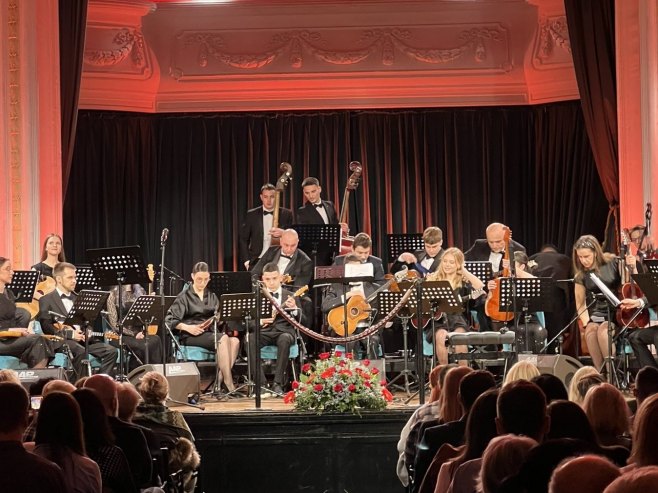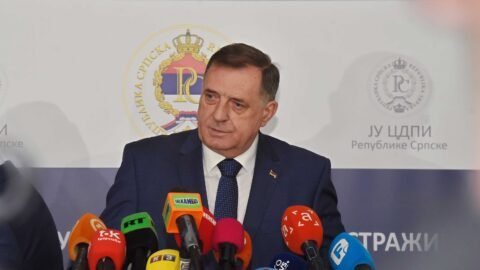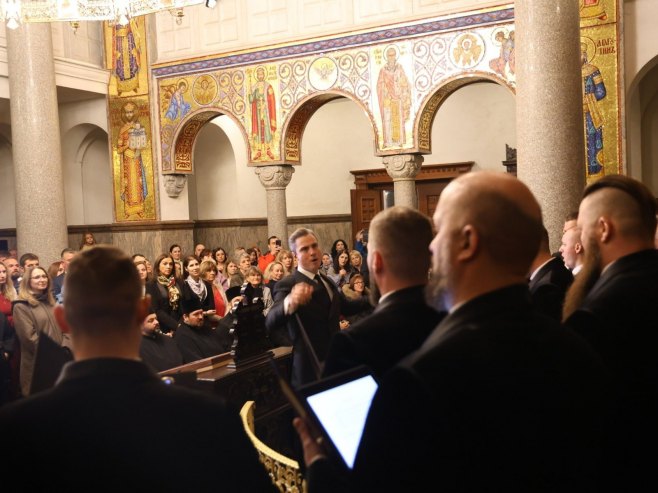By: Damir Šakić, legal advisor to the vice president of the Federation of BiH
In the criminal case against Milorad Dodik, which is being conducted before the Court of Bosnia and Herzegovina, the alleged offense is not an offense at all, as its blanket nature (regarding the “Decision of the High Representative”)—a key element of the offense—cannot be substantiated. The high representative is not only a witness in this case but also an expert, as he possesses “special knowledge” concerning the interpretation of the General Framework Agreement for Peace, a status explicitly assigned to him by the provisions of the agreement.
His findings and opinion serve as the smoking gun type of evidence in this case precisely because of the impossibility of substantiating the blanket nature of the alleged offense. Schmidt would be obliged to answer, among other things, the following questions:
– What is his position within the constitutional and legal framework and political system of Bosnia and Herzegovina?
– What are his powers under Annex 10 of the General Framework Agreement for Peace?
– Does Annex 10 grant the high representative legislative and executive powers?
– Is the record of the Bonn Conference held on December 9–10, 1997, an instrument of international law?
– Is the Bonn Conference record an annex to the General Framework Agreement for Peace?
– Was the Bonn Conference record signed by the parties to the General Framework Agreement for Peace or by the parties to an annex of the agreement?
– What is a “Decision of the High Representative”?
– Is the term “Decision of the High Representative” defined in Annex 10?
– What is the procedure for adopting a decision by the high representative, and how does it acquire legal force?
– What are the legal consequences of a decision by the high representative coming into force?
– What happens to an act that is “revoked” or “annulled” by the high representative’s decision?
– Does Annex 10 define the Office of the High Representative’s website or any other method for publishing and enacting the high representative’s decisions?
– Does the Constitution of Bosnia and Herzegovina define the legislative and executive authority of the high representative?
– Does the Constitution of Bosnia and Herzegovina regulate the relationship between the high representative and the entities?
– Does the Constitution of Bosnia and Herzegovina grant the high representative any legislative or executive authority over the entities?
– Was the Constitution of Republika Srpska created as part of an international agreement?
– Does the Constitution of Republika Srpska contain provisions on the legislative and executive powers of the high representative?
– Does the Constitution of Republika Srpska impose any obligation on the entity toward the high representative?
If the high representative fails to fulfill his obligation and does not testify, meaning he does not provide his findings and opinion, then, by applying the in dubio pro reo principle, the only possible verdict is acquittal. Why? Because nothing has been proven beyond a reasonable doubt, and, more importantly, the blanket nature of the offense—a crucial element—remains unsubstantiated.
Source: Banjaluka.net









